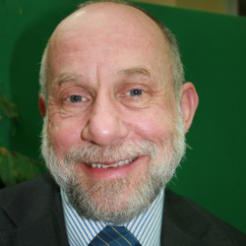Diminishing public funds and emerging social needs will render the business models of medium sized charities unfit for purpose, a Charity Finance Group conference heard yesterday.
Alex Whinnom, chief executive of Greater Manchester Centre for Voluntary Organisations, told the CFG northern conference: “Lots of people have got used to having a lot of public money but there isn’t going to be public money in the future."
He said that devolution of power from central government would not lead to more commissioning of charities at a local level, but that medium-sized charities' business model had been particularly dependent on increased government commissioning.
Charities would be faced with “two huge issues” over the course of the current government, he said: survival, and meeting rising demand for services from beneficiaries.
"The business model of medium sized charities is pretty much not going to work anymore," he said.
“We are going to have to earn much more of our own money and make more use of volunteers if we want to keep going at all."
And he said charities in the north of England faced particular issues because of problems with the northern economy.
“I don’t think you can look at issues for charities in the north of England without looking at the north itself,” he said.
“The north economically is extremely dysfunctional. We have a post-industrial and a rural economy neither of which are working properly. [Is Manchester] a Northern Powerhouse? Yes we certainly are but we are also the poverty capital of the north.
“It’s not all about cuts. We have had decades of investment – we are the biggest economy outside of London – and we have had decades of public spending on welfare and on regeneration schemes. But none of that has made a blind bit of difference to inequality - of all kinds, ranging from life expectancy to productivity – or to poverty."
Whinnom said the 40 plus food banks used mostly by working families in the city were a "shameful" example of escalated poverty.
He also said there was a need for charities to view the sector from a wider context.
“The risk of all that is that we are looking at ourselves rather than looking outwards. We need to think what is the role of the sector in this context - that of the state and that of the market.
“[We need to ask] what is our contribution? Do we have some of the solutions? And how are we going to implement those?” he said.










